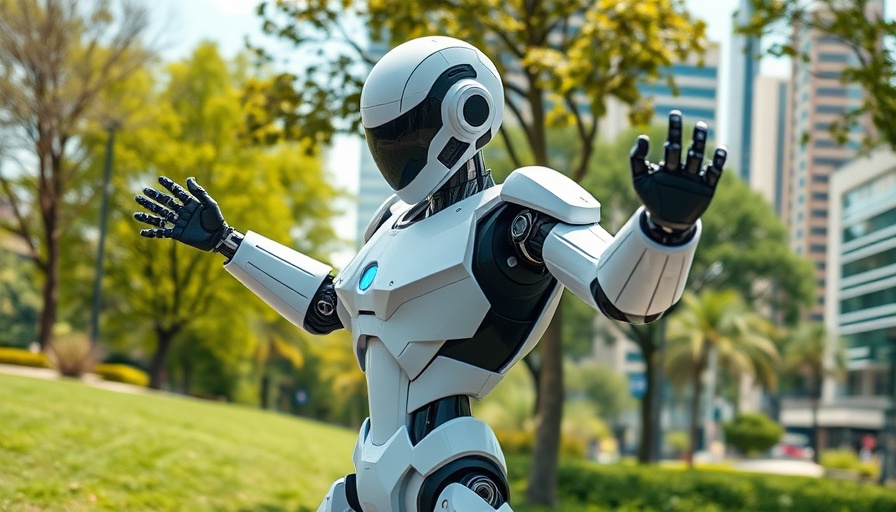
The Dawn of Affordable Humanoid Robotics
For years, humanoid robots have existed primarily in science fiction or among elite research labs. However, with Unitree's latest release, the R1 humanoid robot, we are witnessing a shift that could trigger a cultural transformation in our interaction with technology. Priced at just $5,900, this humanoid robot not only breaks the price barrier but also introduces remarkable mobility and usability standards previously unseen in this market segment.
In China’s New AI Robot Is So Good and Cheap It’s Scary: Unitree R1, the discussion dives into the revolution in humanoid robotics, exploring its potential impact on accessibility and innovation in technology.
What Makes the R1 Stand Out: Key Features
The Unitree R1 showcases an impressive array of features for its price. It stands at 165 cm (about 5'5”) and weighs 25 kg, making it comparable to a teenager in size. However, what sets it apart is its extraordinary agility and functionality. This robot can walk, run, balance, and even perform flips and martial arts kicks, all through intelligent real-time AI control. With 26 degrees of freedom, it can perform multiple complex movements fluidly, something that typical budget bots cannot do. Its ability to navigate uneven terrains represents an advancement in how we think about robotics.
The Open Door Policy: Accessible Robotics Development
One of the standout features of the R1 is that it comes with a fully open software development kit. This unprecedented move means developers, tech enthusiasts, and even educational institutions can customize its functionality to meet specific needs. The open nature of its design encourages innovation, allowing for applications ranging from educational tutors to personal assistants. This capability puts it in a different category compared to other robots in a similar price bracket, especially since many of those tend to come with limited functionalities.
Impact on the Global Robotics Landscape
The introduction of the R1 to the market could disrupt the entire robotics sector by putting pressure on American and European competitors, many of whom still provide high-priced products with fewer features. For example, Tesla's Optimus aims for a cost of around $20,000, while other prominent humanoid robots can exceed $100,000. In contrast, the R1 offers a complete package of features and flexibility at a significantly lower cost.
Real-World Applications: Beyond the Lab
The potential applications for the R1 are extensive. It could serve in various settings, from educational environments to aiding in elder care. The possibilities range from greeting guests in hotel lobbies to acting as a research assistant in universities. This accessibility positions the R1 not just as a toy or a laboratory curiosity, but as a valuable tool for real-world use.
Cultural Shifts: What This Means for Society
As robots like the R1 become more integrated into our day-to-day lives, we must consider the broader implications. When robots enter homes, they elicit questions on safety, privacy, and companionship. It's not just about functionality; it's about how society adapts to such technology. Unitree has acknowledged this cultural shift, encouraging responsible use and understanding of the robot's capabilities and risks. The open communication surrounding the robot's operation and safety guidelines encourages consumers to approach it thoughtfully.
The Bigger Picture: Aiming for Innovation and Accessibility
The timing of Unitree's release of the R1 couldn’t be better, especially with its aspirations toward becoming publicly traded on China's stock exchange. This move follows a trend established by tech giants like Xiaomi, which made sophisticated technology accessible to the masses. In the same way, the R1 is set to democratize access to humanoid robotics, paving the way for innovations in education, healthcare, and consumer markets.
If you’re a tech founder, investor, or professional in the Metro Detroit area focused on innovation, the R1 highlights a significant leap forward in robotics technology with implications that could resonate within Michigan's burgeoning tech ecosystem. It emphasizes the importance of affordable technological advancement, presenting opportunities for startups in artificial intelligence, robotics, and automation.
 Add Row
Add Row  Add
Add 



Write A Comment